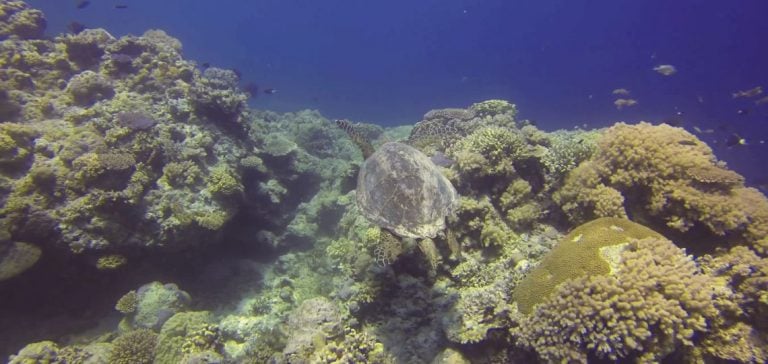The expansion of oil and gas activities in the “Coral Triangle,” nicknamed the “Amazon of the Seas” for its exceptional biodiversity, raises serious concerns among environmental organizations. This maritime area, covering 10 million square kilometers, is home to over 600 marine protected areas (MPAs). However, nearly 16% of this area is now covered by oil and gas exploration blocks, as highlighted by the report “Coral Triangle in Peril: Threats and Impacts of Fossil Fuels,” published by the Earth Insight collective.
This report, compiled from satellite images and regional data, warns against the increase in maritime traffic triggered by fossil fuel exploitation. This rise in traffic, according to the document, heightens the risk of oil spills, which could have catastrophic consequences for local populations and marine ecosystems. Florencia Librizzi, program director for Earth Insight, emphasizes, “Protecting this natural network from the pressures of fossil fuel exploitation is essential to preserving this unique ecosystem.”
An Exceptional Biodiversity Under Threat
The Coral Triangle spans seven countries in the Pacific region, including Indonesia, Malaysia, Papua New Guinea, Singapore, the Philippines, East Timor, and the Solomon Islands. The biodiversity in this region is immense, making it one of the world’s most diverse marine ecosystems. Indeed, it is home to unique marine species and lush coral reefs, which are essential for local fisheries.
However, this biodiversity is increasingly threatened by human activity, especially oil and gas exploration and exploitation. NGOs are concerned about the impact of these activities on coral reefs, which play a vital role in coastal protection and supporting marine life. The increase in tanker traffic in the region not only raises the risk of oil spills but also disrupts sensitive species, including turtles and marine mammals.
Risks for Local Communities
The potential consequences of oil spills and other incidents related to oil transportation extend beyond the environment; they also affect local communities. Many people in the region depend on fishing for their livelihood. A major oil spill could jeopardize their food security, health, and livelihoods.
Additionally, tourism, which is a crucial source of income for several of these countries, could also suffer. Beaches and reefs damaged by oil pollution become less attractive to visitors, leading to significant economic losses for local economies.
A Call for Enhanced Protection
Faced with these threats, Earth Insight and other NGOs advocate for a moratorium on oil and gas activities in the sensitive areas of the Coral Triangle. The report recommends designating this region as a “particularly sensitive maritime area.” Such a status would imply increased protection due to its ecological, socio-economic, and cultural importance and its vulnerability to maritime activities.
The NGO also reminds us that solutions exist to protect this unique ecosystem. Stricter regulations on maritime transport, limiting new oil concessions, and developing environmentally friendly alternative energy sources could help safeguard this area for future generations.
Toward an International Awareness
As global environmental challenges intensify, the Coral Triangle is becoming a symbol of ecological struggles and the need to preserve marine biodiversity. The current situation in this region calls for international awareness and concrete actions to mitigate the risks posed by fossil fuel exploitation. In this context, Earth Insight hopes that the report can encourage the governments concerned and international organizations to act swiftly to prevent irreversible damage.






















